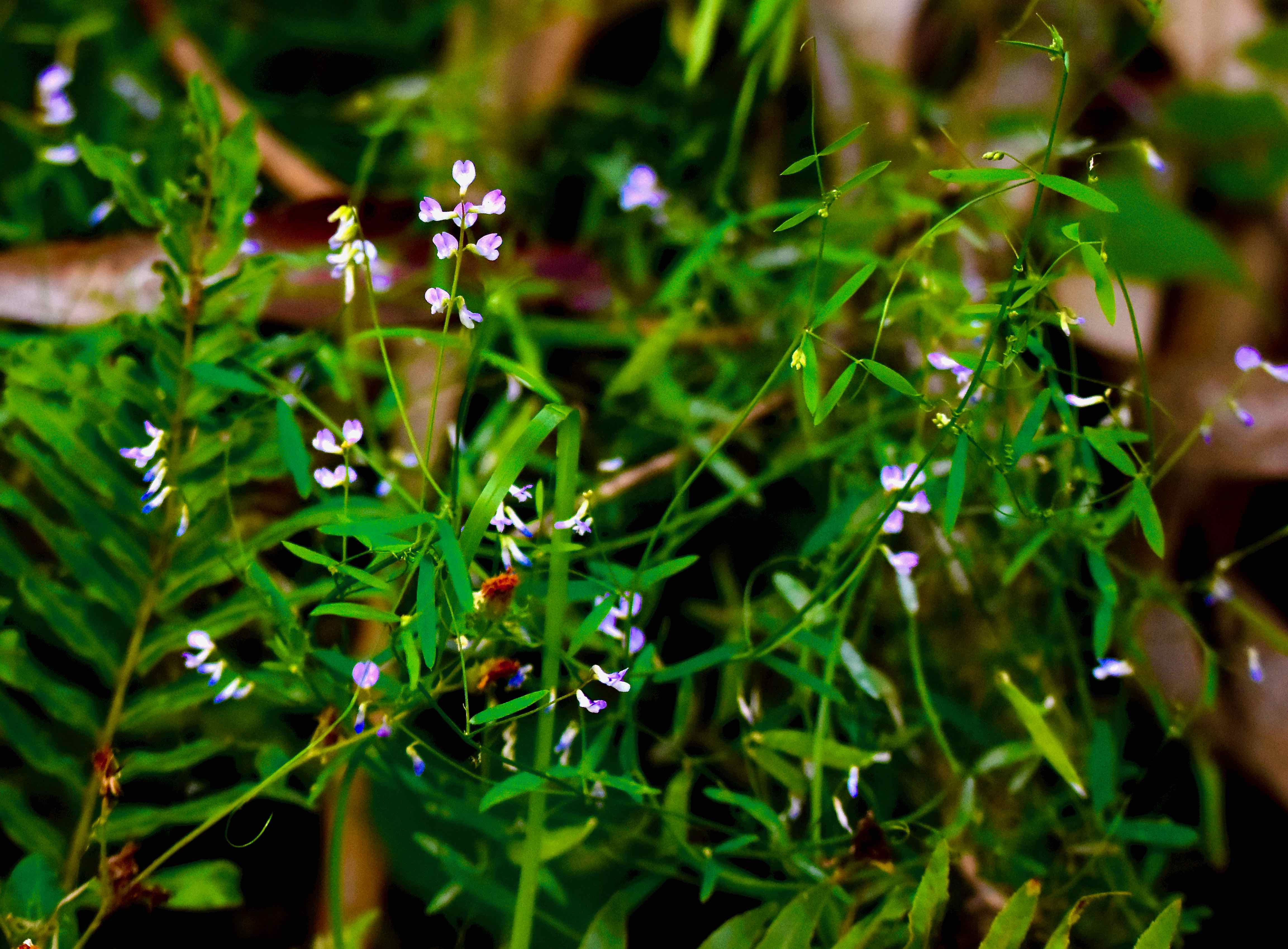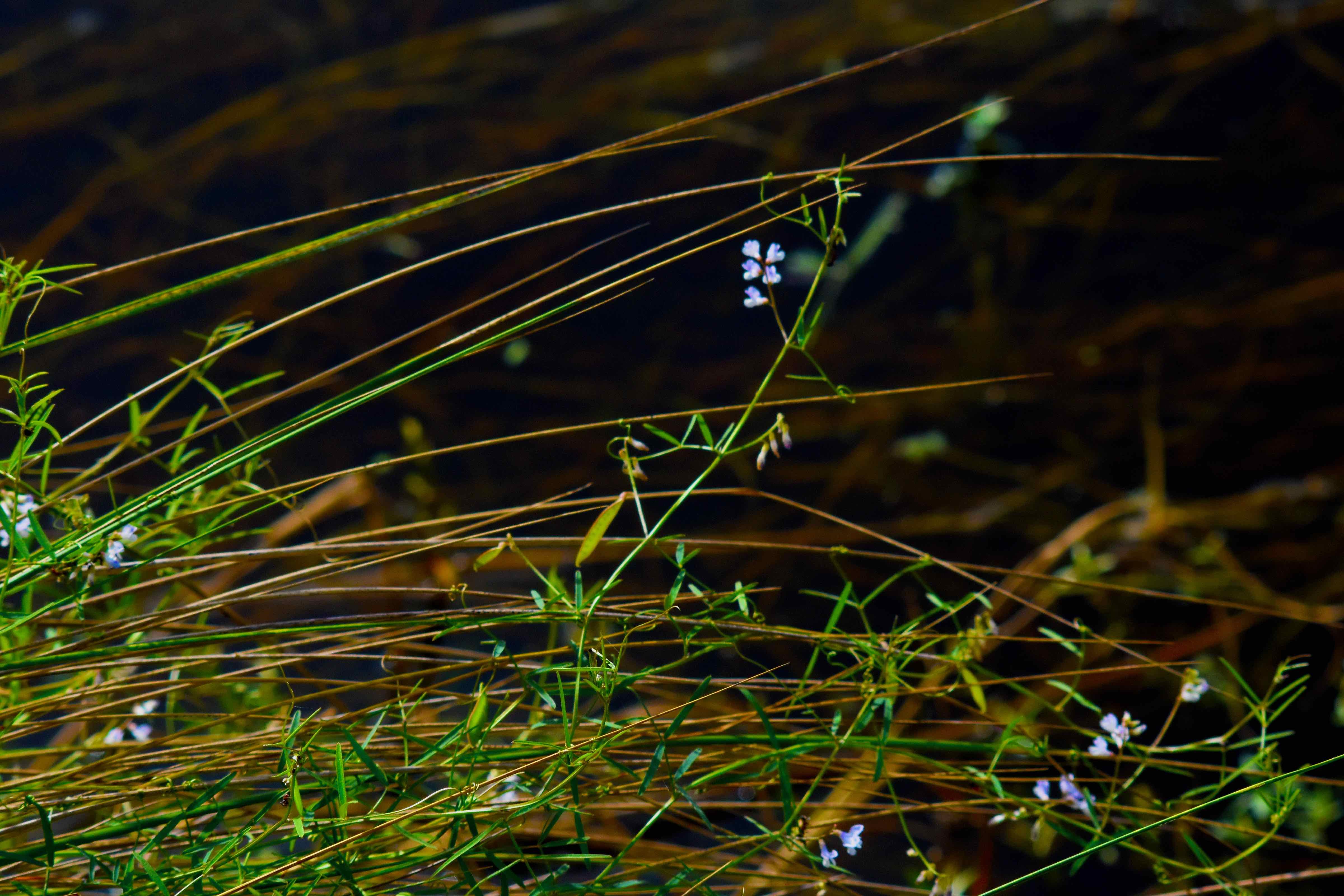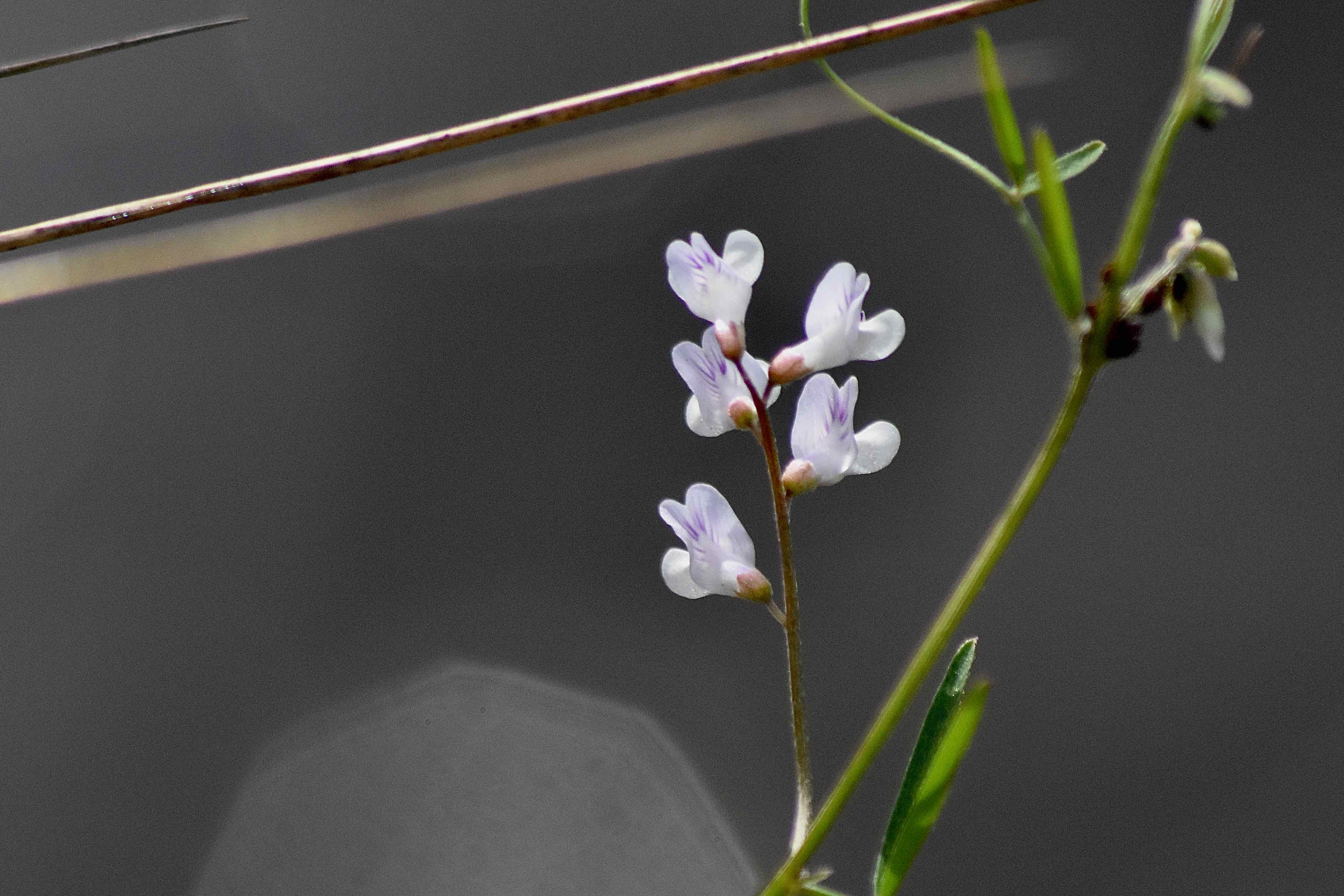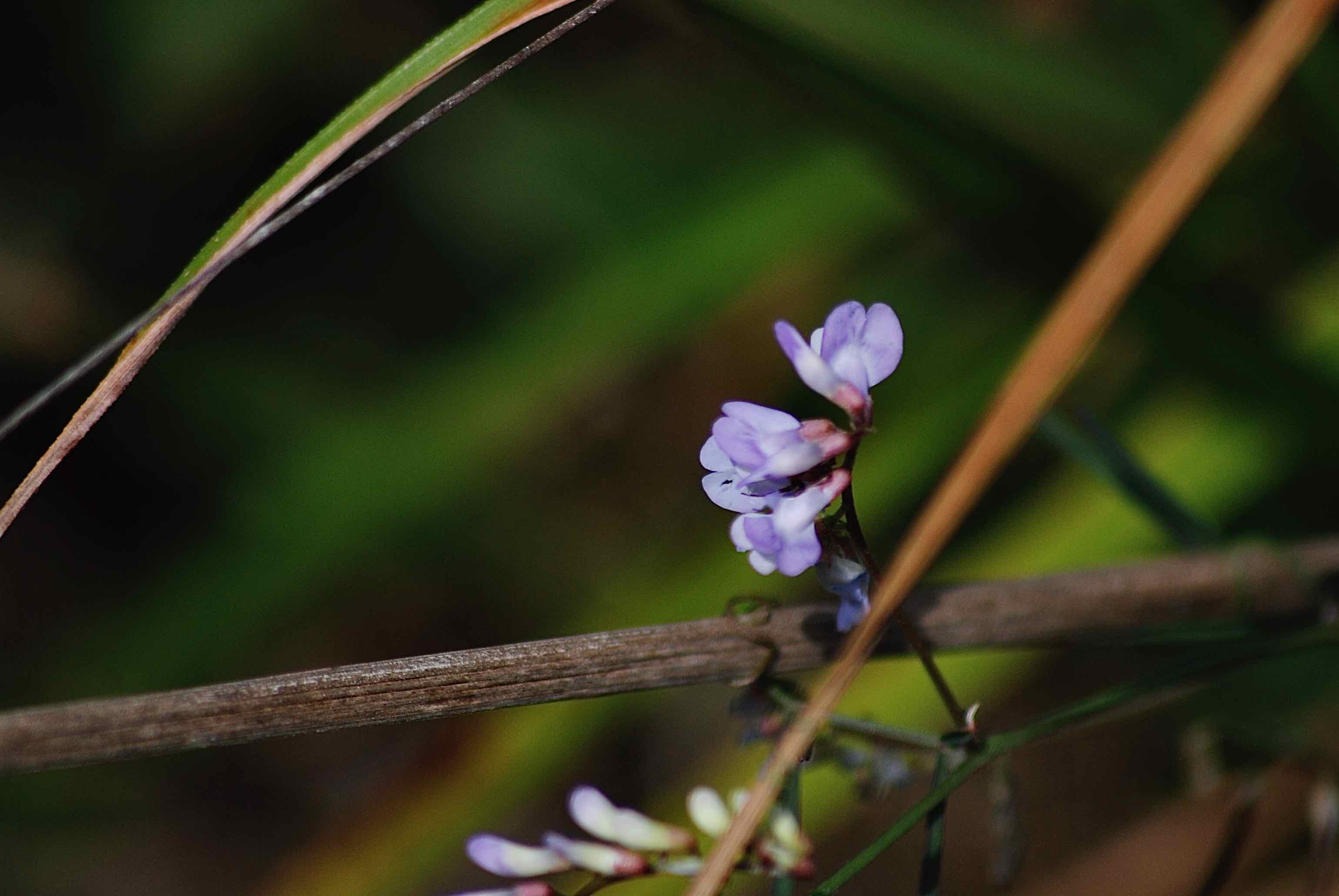
Fourleaf Vetch, photographed at Jonathan Dickinson State Park, Hobe Sound, Martin County, in May 2016.
Fourleaf vetch, Vicia acutifolia, is one of those plants you wouldn't notice even if you tripped over it. Other than its eyecatching little flowers, there's nothing that really stands out about it.
And trip over it you might — it is a low-growing, spindly vine, with sparse vegetation and not particularly long — three feet or less. Fourleaf vetch just blends in with whatever it happens to be growing on. But there are those little flowers, which make you glad you did stumble across it. The flowers can be light blue, nearly white, deep blue or anywhere else on the spectrum.
Fourleaf vetch is a Florida native found throughout most of the Peninsula and parts of the Panhandle. It is not present in the Keys. It's also native to Alabama, Georgia, South Carolina and the northern Bahamas.
It's found growing in moist soils, wet woodlands, hammocks, the edges of swamps, ponds and rivers and in roadside ditches. We've seen it at Cypress Creek Natural Area in Jupiter and at Green Cay Nature Center. It is a perennial.
Many vetches are useful as sources of food for human consumption, including peas. Others are grown as fodder for livestock. Still others are used as cover crops or as "green manure" for improving the soil of fallow fields — the roots, with the help of certain bacteria, can "fix" nitrogen to the ground.
Fourleaf vetch, however, offers little of value to man and beast other than as a ground cover and butterfly attractant. At least nothing that we could find.
The flowers are in clusters of two to six, sometimes more, called racemes. Fourleaf vetch is a spring bloomer and not particularly heat tolerant. The fruit is a small pea-like pod each filled with eight to 12 seeds.
It can be found growing along the edges of fresh or brackish swamps and marshes, wet woodlands and along wet or moist roadside ditches.
It is the host plant for the barred yellow butterfly, which might offer some appeal to butterfly gardeners. But the Institute for Regional Conservation in Delray Beach also warns that fourleaf vetch can be weedy. It is salt tolerant, and is recommended as a ground cover to stabilize coastal stream banks in some places.
Fourleaf vetch is a member of Fabaceae, the pea family. Another common name for it is sand vetch (but not sandwich).
Jonathan Dickinson State Park



